The film Streets of Fire is at its core a western, it may open on a rock concert where lead singer Ellen Aim (Diane Lane) is kidnapped by a leather clad biker gang called The Bombers, who is then rescued by a lone stoic hero who arrives in town via elevated train, all you have to do is just replace the singer with a schoolmarm, the biker gang with rustlers and the stoic hero into…well you don’t have to change him at all, and you've got yourself a standard western. The film’s hero is Tom Cody (Michael Paré) who upon learning from his sister Reva (Deborah Van Valkenburgh) that his old girlfriend had been snatched he returns home to set things right. To establish Cody as a capable hero we get to see him take on a different gang called The Roadmasters who had arrived in the wake of The Bombers kidnapping of Ellen to get some action for themselves. Cody easily defeats the gang, displaying his abilities with a butterfly knife and a broom handle, and thus sets his image as a solid badass.
He also can’t seem to grow a beard or afford shirt sleeves.
In many westerns a lone hero often needs a little assistance and in this case it is in the form of McCoy (Amy Madigan) an ex-military mechanic who shows her stuff by punching out jerk bartender Clyde (Bill Paxton) for giving her a hard time. Also along for the ride is Ellen’s manager/boyfriend Billy Fish (Rick Moranis) who Cody insists is needed because he is familiar with The Bomber’s home turf. Fish is your standard strawman rival to the heroes true love; he is small, weak, and has a big mouth, while the hero is big, powerful and of the strong silent type. We learn that Cody left Ellen because she was beginning to focus on her music career and he couldn’t see himself being a part of that, and what is great here is that neither of them is treated as being fully in the wrong.Though sleeping with this guy to get ahead could be considered very wrong.
Of course the real reason to watch Streets of Fire isn’t the cool slant on western themes, or the rocking soundtrack by Jimmy Lovine and Ry Cooder, nor the gorgeously shot neon-splashed world orchestrated by cinematographer Andrew Laszlo and production designer John Vallone that clearly inspired the out of time sets found in Tim Burton’s Batman, it is the performance of Willem Dafoe as Raven, the psychotic leader of The Bombers, that stays with you long after the end credits roll. Every moment that Dafoe is on screen you are completely captivated; from his weird 50s flattop haircut to his wardrobe that makes him look like a Dick Tracy villain who hangs out at leather bars, but most importantly it's his calm malevolent intensity that oozes danger and violence at every turn.Who knew the Devil wore leather hip waders.
The first hour of the movie is simply great with our trio consisting of Cody, McCoy and Fish heading deep into The Battery where The Bombers hang out at a factory turned bar called Torchie’s. Cody takes the high road so that he can lay some devastating fire power against the gang’s motorbikes to help ensure their escape, while McCoy infiltrates through the front door to make her way up to where Ellen is being held captive. The entire rescue sequence is orchestrated brilliantly and director Walter Hill is one of the best in the business when it comes to these kind of action moments, but sadly after the rescue and their nail-biting escape from The Battery, where they end up car-jacking a bus that is owned by the music group The Sorels “Hey that’s Robert Townsend!” and they have to fight their way passed corrupt cops who run their districts like some kind of feudal system, the film kind of stops dead in its tracks.Once they get back to their home district of Richmond we should be wrapping things up and waiting for the end credits to roll, but instead we have Raven sending one of his emissaries to order the police to stand down so that he and two of his men can roll in and kill Cody.
“Don’t I look like a reasonable guy?”
We do get a really cool and original fight between our hero and the villain, I certainly don’t remember the last time I’ve seen a film where two people went at it with pick axes, and the film even doubles down on its western motif with Cody not getting the girl in the end just as Alan Ladd in Shane didn’t end up with Jean Arthur. Sure Cody and Ellen kiss in the rain, and they even go back to his place for some hot steamy sex, but Cody knows that he has no place in her life and that she’s better off with Billy Fish. Part of this is may have a lot to do with Walter Hill hoping he could get a couple sequels that would have followed the further adventures of Cody but the studios terrible marketing and half-ass released doomed this from ever happening.I bet Walter Hill would have loved to have been able to express his displeasure via pick axe.
Streets of Fire hit theaters just as MTV and music videos were gaining awareness and though Walter Hill’s movie about stalwart heroes versus a motorcycle gang isn't your typical musical it can still fall into that genre as the film is almost wall-to-wall songs. The music found in Streets of Fire is diegetic in nature, where the music comes from a visible source i.e. a band playing or a radio or television set playing a song or music video, with nobody bursting into song like the Jets and the Sharks in West Side Story.With Walter Hill’s Streets of Fire we get an offbeat action movie that is chock full of great songs (sadly Bruce Springsteen refused to let them have the song Streets of Fire), a classic hero, a posse of great supporting characters and a villain that once seen will never be forgotten.
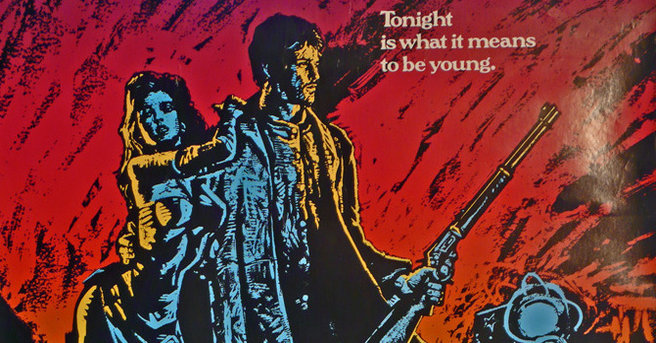
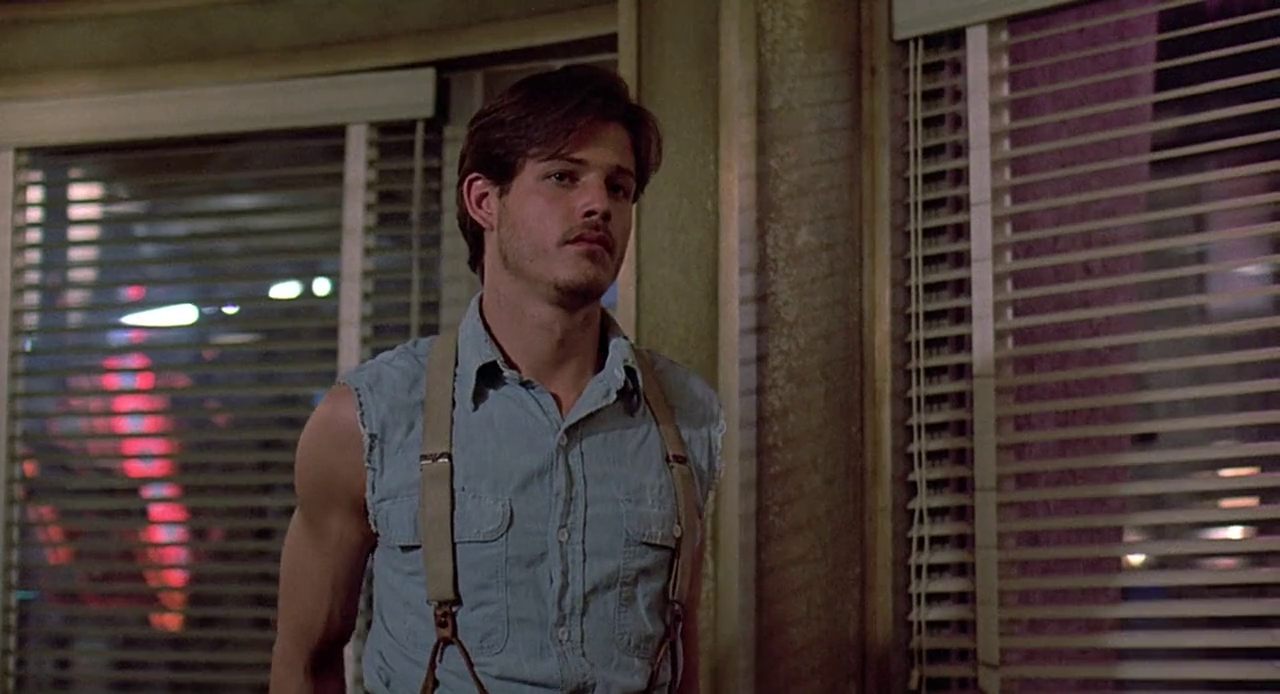
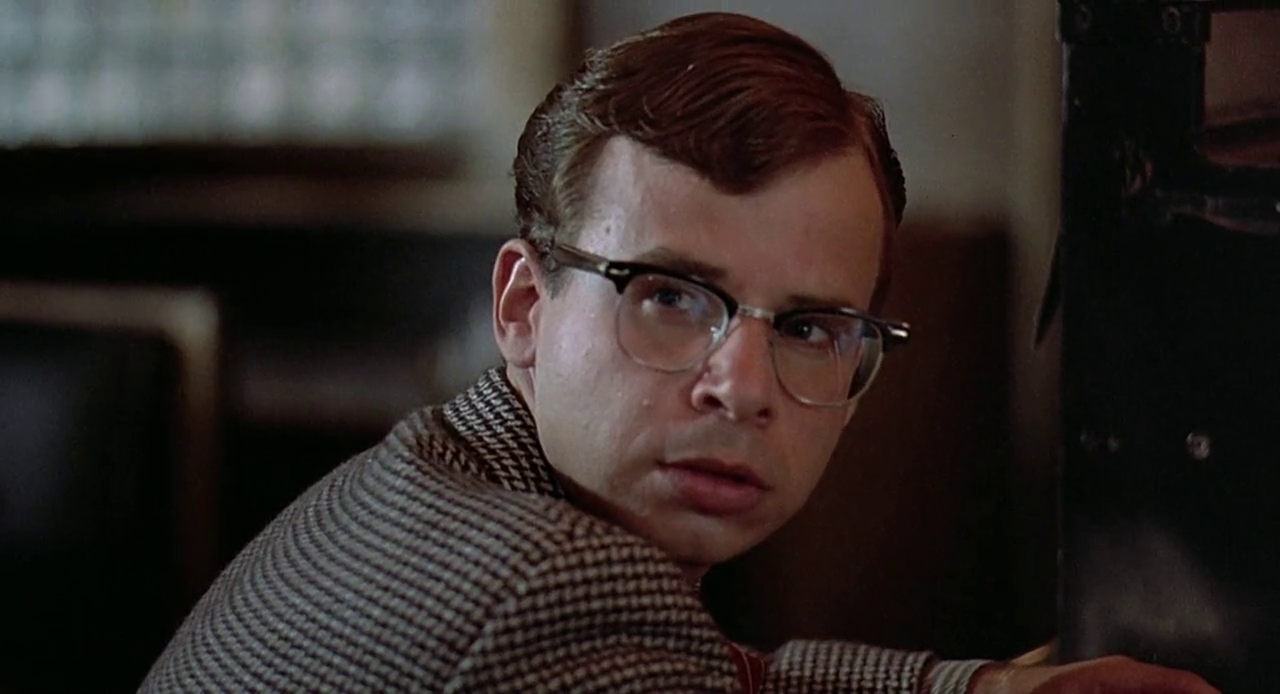

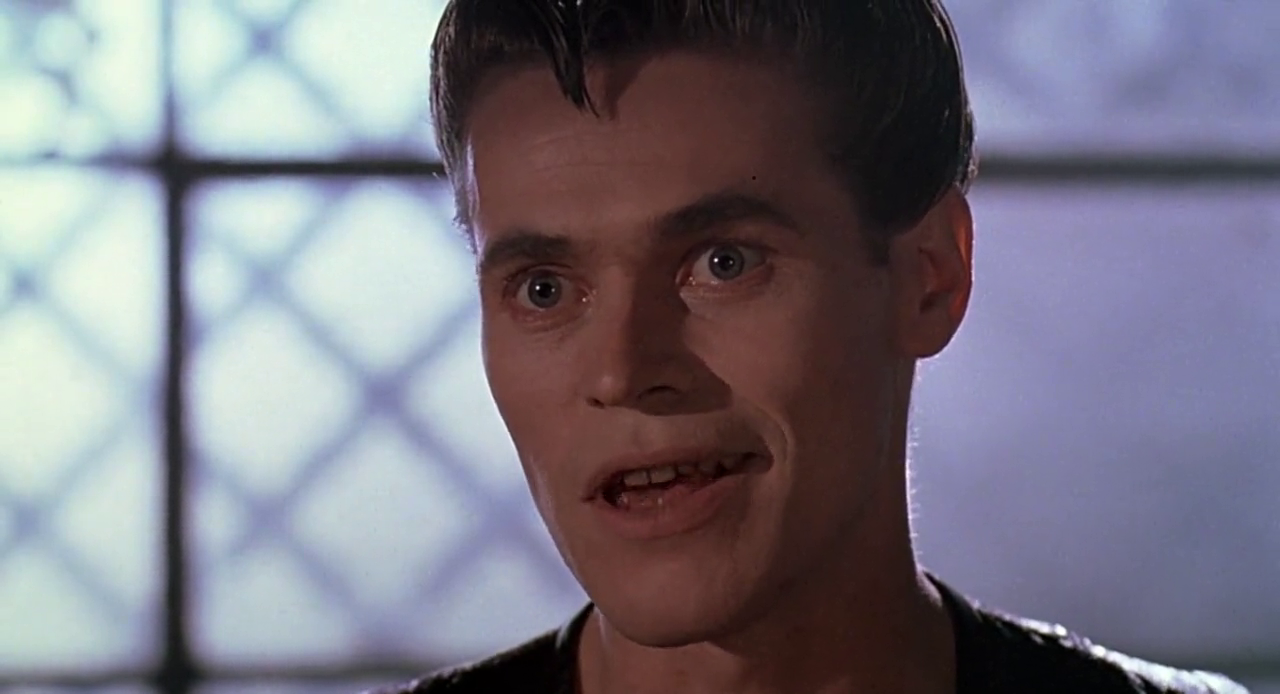
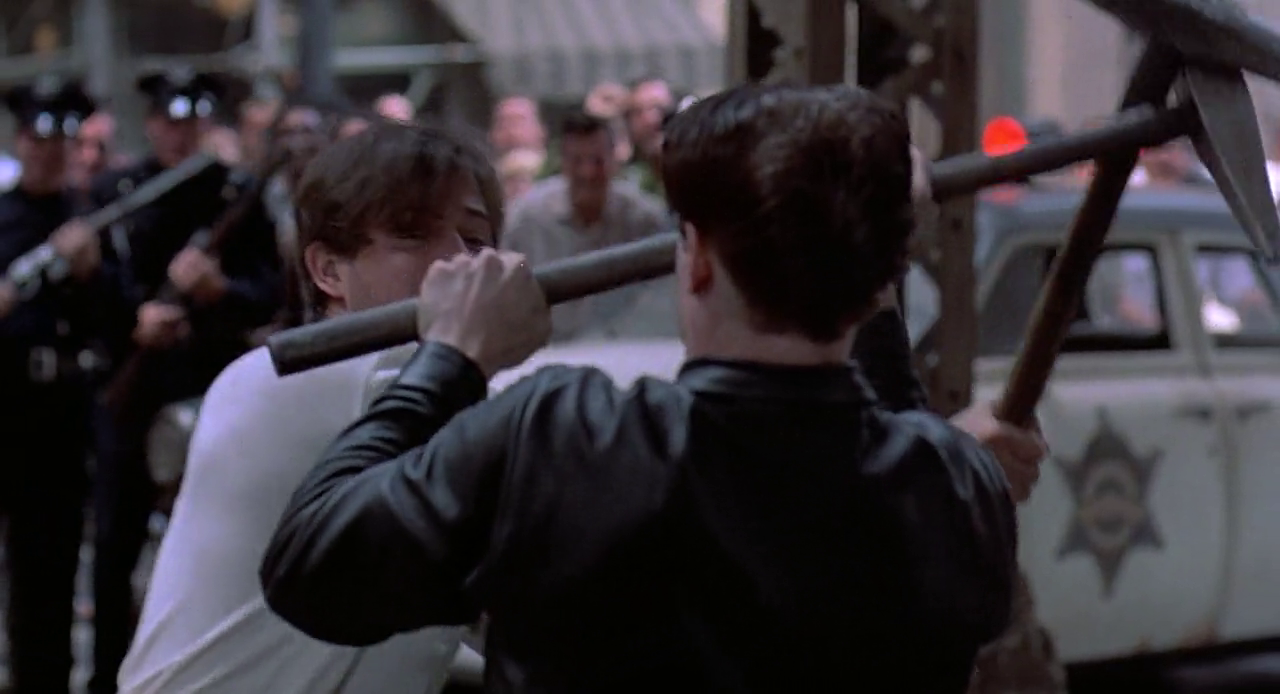
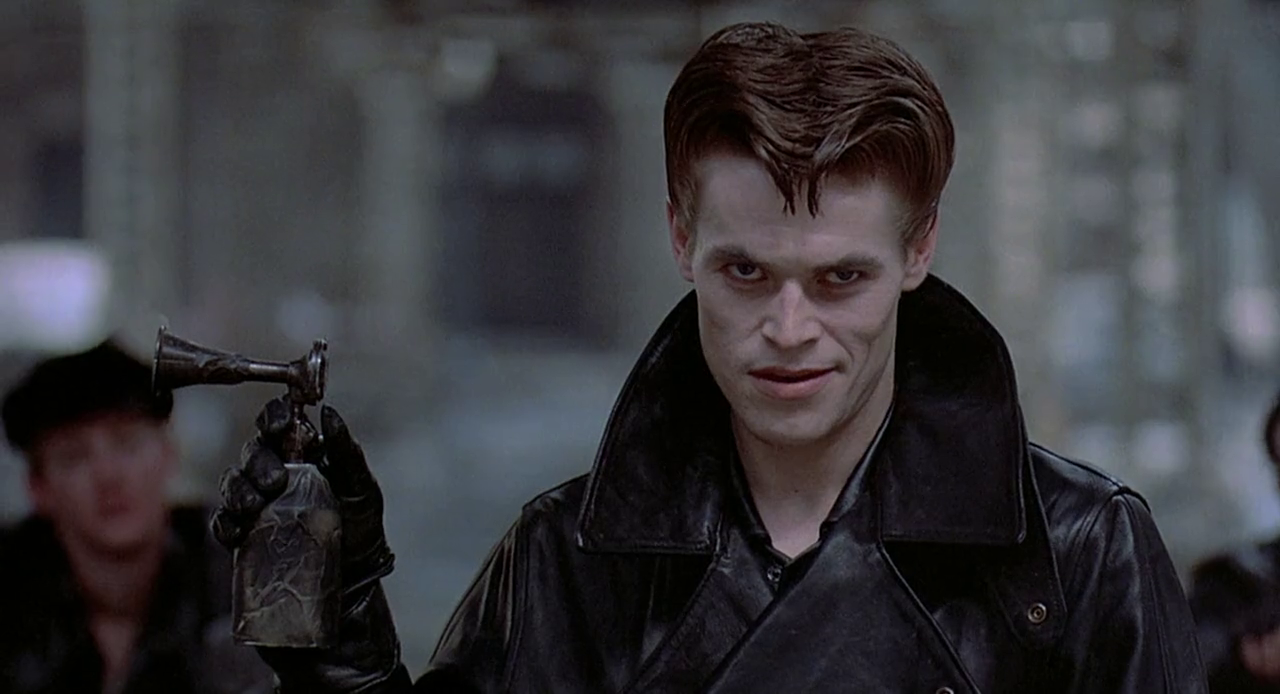

No comments:
Post a Comment